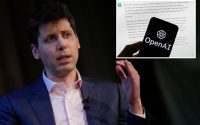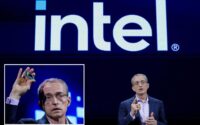TikTok CEO Shou Zi Chew’s testimony will increase ban calls
TikTok CEO Shou Zi Chew’s testimony on Capitol Hill was a “disaster moment” for the company that will likely increase calls for a sale or outright ban of the problematic platform, Wall Street analysts predicted.
Chew angered lawmakers with evasive or unclear testimony during a closely watched House hearing on Thursday — which included damning details about TikTok’s ties to China and its failure to police harmful content for underage users.
Wedbush analyst Daniel Ives said the window is quickly closing on TikTok’s Beijing-based parent company, ByteDance, to sell the company before a ban is imposed before the end of the year.
“We see a 3-6 month period ahead for ByteDance and TikTok to work out a sale to a US tech player with a spin-off less likely and extremely complex to pull off,” Ives said in a note to clients Thursday.
“If ByteDance fights against this forced sale, TikTok will likely be banned in the US by late 2023.”
Ives labeled Chew’s performance a “disaster moment” for the company that will “likely catalyze more calls by lawmakers and the White House to look to ban TikTok within the US if the company does not look to spin-off and force a sale from Chinese parent ByteDance.”

Angelo Zino, a senior equity analyst at CFRA Research, came to the same conclusion but put a longer horizon on the likelihood that TikTok will be sold or banned.
“We don’t think anything said by Mr. Chew alleviated concerns about sensitive TikTok data eventually reaching the Chinese government,” Zino said.
“We come away with the belief that an outright sale or ban is looking increasingly likely in the next 12-18 months,” he added.

Chew admitted during the hearing that some employees from ByteDance could still have access to US user data.
The TikTok boss had sought to assuage lawmakers’ concerns by touting a $1.5 billion investment in an initiative called “Project Texas,” in which the firm has pledged to shift all US-centric data to servers maintained by tech giant Oracle.
Chew also argued that TikTok has been more transparent than its other Big Tech rivals and pointed to the company’s pledge to open its source code to a third-party review.
But lawmakers rejected Chew’s assurances and targeted TikTok over concerns that China could use the app to spy on or influence American users.
The company also was slammed for failing to curtail harmful TikTok “trends” or content, such as videos glorifying suicide or calling for violence against lawmakers.
Though a potential ban of TikTok has received bipartisan backing, a sale is the more likely outcome due to the platform’s massive popularity among potential voters, Zino said.

“Politicians needing to tread carefully to ban a platform that is extremely popular (+150 million users) with voters (aged 18-45),” Zino said. “If a ban is placed, SNAP should be the biggest beneficiary.”
Shares of Snapchat’s parent company, Snap Inc., rose 3% in Thursday trading as Chew testified. Facebook and Instagram parent Meta’s stock jumped 2%.
“Shou came prepared to answer questions from Congress, but, unfortunately, the day was dominated by political grandstanding that failed to acknowledge the real solutions already underway,” a TikTok spokesperson said in a statement after the hearing.

Even before Chew’s appearance, the Biden administration had reportedly demanded that ByteDance executives divest their stakes in TikTok or face a nationwide ban in the US.
China raised eyebrows by saying it would “oppose” a forced sale, despite TikTok’s assurances that the Chinese Communist Party has no direct ties to the company.


